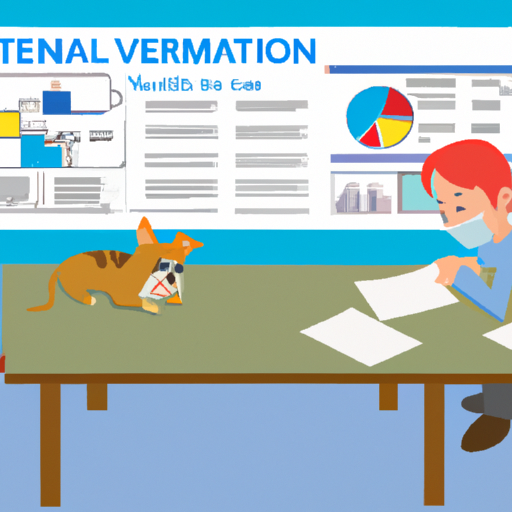Understanding Parvovirus in Dogs
Parvovirus, or ‘parvo’, is a highly contagious viral disease that can be life-threatening for your furry friend. You might feel terrified and helpless when your beloved pet is diagnosed with this disease. But, remember, you’re not alone. With early detection, proper medical care, and a lot of love, you can help your dog fight against parvo.
Recognizing the Symptoms
Before we dive into the treatment, it’s crucial for you to understand the signs and symptoms of parvo:
- Lethargy
- Vomiting
- Severe diarrhea (often bloody)
- Loss of appetite
- Fever
In puppies, symptoms can also include a potbelly and flaky skin due to worms.
Treating Parvo at the Veterinarian
The first step to treating parvo is getting your dog to the vet. Parvo is a serious disease and should not be treated with home remedies alone. Your dog will likely need to be hospitalized for treatment, which typically includes:
- Intravenous fluids to correct dehydration
- Antibiotics to prevent secondary infections
- Medication to control vomiting and diarrhea
- Immune system support
It’s a tough journey, but remember, you’re their anchor in this storm. Your love and support can make a significant difference.
Home Care and Prevention
After your dog has been treated by a vet and is stable enough to return home, you’ll need to provide supportive care at home, including:
- Ensure they’re hydrated: Dehydration can worsen your dog’s condition. Make sure they’re drinking enough water, and if they refuse, try enticing them with low-sodium chicken broth.
- Serve bland diet: Gradually reintroduce food to your dog. A bland diet, such as boiled chicken and rice, is recommended initially.
- Isolate your pet: Parvo can spread to other dogs, so it’s crucial to keep your sick pet away from other animals.
Prevention is always better than cure. The best way to prevent parvo is through vaccination. Your vet can help develop a vaccination schedule that’s right for your dog.
Cleaning and Disinfecting
Parvo can survive in the environment for a long time. It’s critical to clean and disinfect your home thoroughly, especially the areas where your dog has been. This includes:
- Cleaning and disinfecting all hard surfaces
- Washing all bedding, toys, and bowls
- Disinfecting your yard (parvovirus can survive in soil for up to a year)
| Area | Cleaning Agent | Frequency |
|---|---|---|
| Floors | Bleach solution | Daily |
| Toys | Bleach solution | After each use |
| Yard | Commercial parvocide | Monthly |
FAQ
Q1: Can humans get parvo from dogs?
No, humans cannot get parvo from dogs. The parvovirus strain that affects dogs is different from the one that affects humans.
Q2: How long does a dog with parvo stay in the hospital?
The length of hospitalization can vary, but most dogs with parvo will need to stay at the vet for several days to a week.
Q3: Can dogs survive parvo without treatment?
Parvo is a life-threatening disease. Without proper treatment, most dogs with parvo will not survive.
Q4: Can a vaccinated dog get parvo?
While rare, it’s possible for a vaccinated dog to get parvo, especially if they’re not up to date on their vaccinations. Regular boosters are essential for maintaining immunity.
Q5: How can I disinfect my yard from parvo?
There are commercial parvocides available that can kill parvovirus in the yard. You can also use a bleach solution, but be aware that this can harm plants and grass.
Remember, fighting parvo is a team effort. With the right knowledge, care, and medical aid, you can help your dog recover and thrive. Stay strong, and don’t lose hope.



